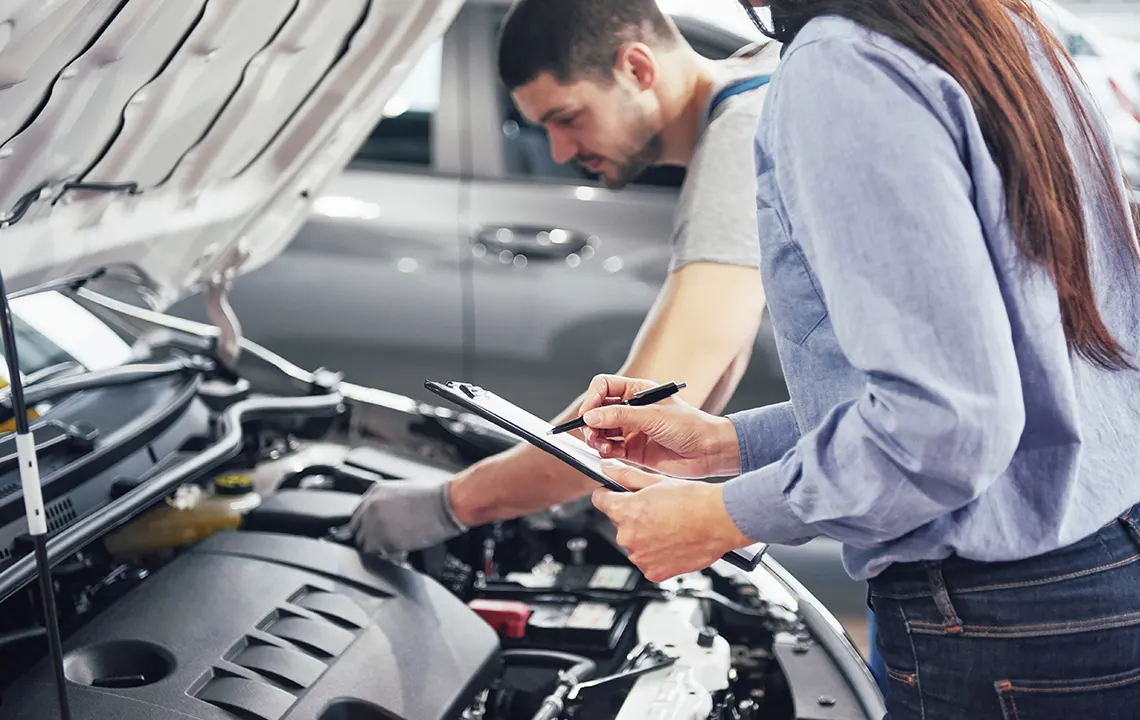Keeping your vehicle in prime condition not only ensures peak performance but also extends its lifespan, offering both peace of mind and potential savings on expensive repairs.
In this article, we explore the top five routine checks every vehicle owner should perform, with a particular focus on the unique conditions faced by Australian drivers.
Introduction
Modern vehicles are intricate machines composed of numerous mechanical and electronic components working in tandem. Although each vehicle comes with its own maintenance schedule, comprehending and performing regular checks can significantly help in averting unexpected issues.
Understanding Basic Vehicle Maintenance
A well-maintained vehicle provides a smoother, more reliable driving experience. Recognizing the essential routine checks and performing them regularly can profoundly impact your vehicle’s performance and longevity.
The Importance of Regular Maintenance
Consistent maintenance ensures optimal fuel efficiency, prolongs your vehicle’s lifespan, and reduces the risk of unforeseen breakdowns. It also helps maintain its resale value.
Familiarizing Yourself with Your Vehicle’s Manual
Every vehicle comes with a manual that offers crucial information on its maintenance needs, including specific timelines for checks and replacements. Understanding and adhering to this manual can lead to optimal vehicle performance.
Regular Oil Changes
Oil changes are vital for vehicle maintenance, keeping the engine well-lubricated and running smoothly.
The Importance of Oil Changes
Engine oil lubricates the moving parts of the engine, reducing friction and wear. It also helps keep the engine clean by absorbing dirt and other contaminants.
Choosing the Right Engine Oil
Selecting the appropriate oil for your vehicle is crucial. The vehicle’s manual usually specifies the correct type of oil. In Australia, considering the diverse climatic conditions, you might need different oil types for different times of the year.
Oil Change Frequency
The frequency of oil changes depends on your vehicle type, the conditions in which you drive, and your driving habits. A general guideline is every 10,000 kilometres or every six months, whichever comes first. However, always check your manual for the manufacturer’s recommendations.
Read More : The Most Important Car Parts For Your Vehicle
Tyre Inspection and Maintenance
Tyres are your vehicle’s only contact with the road. Regular inspections and maintenance ensure a safe and comfortable ride.
Understanding Tyre Treads
Tyre treads provide the grip necessary for safe driving. Australian law mandates a minimum tread depth of 1.5mm across the breadth and around the entire outer circumference of the tyre. Regularly checking your tyre treads can prevent accidents and avoid fines.
Checking Tyre Pressure
Correct tyre pressure ensures vehicle stability, optimal road grip, and fuel efficiency. It also reduces the risk of tyre blowouts. Check the pressure at least once a month and before long trips.
Wheel Alignment and Balancing
Wheel alignment and balancing reduce tyre wear, ensure smooth driving, and improve fuel efficiency. Have them checked during routine maintenance or if you notice unusual tyre wear or the vehicle pulling to one side.
Brake System Check
The brake system is crucial for vehicle safety. Regular checks can prevent accidents and save lives.
Understanding the Brake System
The brake system comprises various components, including brake pads, rotors, and fluid. These work together to slow down or stop your vehicle when needed. Understanding how these components work can help identify potential problems.
Signs of Brake System Issues
Signs of brake system problems include squeaking or grinding noises when braking, a pulsating brake pedal, a shaking steering wheel when braking, and the vehicle pulling to one side. If you notice any of these signs, seek professional help immediately.
Regular Brake Maintenance
Regular brake checks can prevent costly repairs and potential accidents. The frequency of these checks depends on your driving habits and the vehicle model, but a good practice is to have them inspected during every service.
Read More : Car Disposal In NSW
Battery Check and Maintenance
The battery powers all electrical components in your vehicle. Regular checks and maintenance can prevent sudden failures.
Understanding Your Vehicle’s Battery
The battery provides the necessary power to start the engine and powers all electronic devices when the engine is off. In Australia, the average battery life is 3-5 years, but regular checks are still recommended.
Signs of Battery Problems
Signs of a weak or failing battery include difficulty starting the engine, dimming headlights and interior lights, and the check engine or battery light coming on. If you notice any of these signs, have your battery tested.
Battery Maintenance Tips
Keep the battery clean and free of corrosion. Ensure the battery is securely mounted to prevent vibration, which can cause damage. If your vehicle is not driven regularly, consider using a battery maintainer to keep it fully charged.
Regular Engine Coolant Checks
Engine coolant helps prevent the engine from overheating. Regular checks are vital, especially in Australia’s hot summers.
The Importance of Engine Coolant
Engine coolant absorbs heat from the engine and dispels it through the radiator. Regular coolant checks can prevent engine damage due to overheating.
Signs of Coolant System Issues
Signs of coolant system issues include a high reading on your temperature gauge, a low coolant level in the reservoir, and visible coolant leaks. If you notice any of these signs, top up the coolant if necessary and seek professional help.
Coolant Check Frequency
Check the coolant level at least once a month. As for replacing the coolant, refer to your vehicle’s manual, but a general rule is every two years or 40,000 kilometres, whichever comes first.
Conclusion
Performing these routine vehicle checks regularly ensures optimal performance, extends your vehicle’s lifespan, and enhances your safety on the road.
Why Regular Maintenance Matters
Regular maintenance keeps your vehicle in top condition, ensures safe and smooth driving, and can save you money by preventing costly repairs in the long run.
Understanding the Impact on Vehicle Lifespan and Performance
Regular maintenance can significantly extend your vehicle’s lifespan and maintain its performance. A well-maintained vehicle also offers better fuel efficiency, reducing your fuel costs.
Final Reminders for Australian Drivers
Australia’s varying climates and terrains present unique challenges for your vehicle. Understanding these challenges and adapting your maintenance routine accordingly can keep your vehicle running smoothly and efficiently, wherever your journey takes you.




